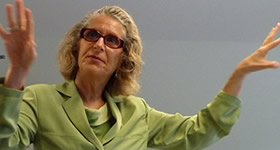Last week, Tom and I presented at the AFP Memphis Chapter conference. While there, we visited the National Civil Rights Museum at the Lorraine Motel. The modern museum is grafted onto the Lorraine Motel, where Martin Luther King, Jr. died on the balcony. You visit the room across the street where the assassin stood.
I cried. I cried as I went through our history of slavery – beginning in the 1600s. There were descriptions and photos and stories and films of slaves…protests…beatings…lynchings…Jim Crow laws. There I was reminded, again, of the courage and righteousness — true righteousness — of the Civil Rights movement. The youth who sat at white only lunch counters. Rosa Parks on the bus. Martin Luther King, Jr. in jail. Jesse Jackson, James Farmer, Jr. James Meredith. School integration.
I saw the horrors perpetrated by my own race, we whites. I saw governors and senators and mayors who promoted racism in law and practice. I witnessed, again, the leadership and courage of LBJ.
This week, I watched The Great Debaters on television again. The 1930s debate between all-Black Wiley College and Harvard. The last remarks by the youngest member of the debate team, James Farmer, Jr., who went on to fight so well in the Civil Rights movement.
The debate was about civil disobedience – the right to protest the law. In the final moments of the debate, Farmer talked about seeing a lynching.
“In Texas they lynch Negroes. My teammates and I saw a man strung up by his neck and set on fire. We drove through a lynch mob, pressed our faces against the floorboard. I looked at my teammates. I saw the fear in their eyes and, worse, the shame. What was this Negro’s crime that he should be hung without trial in a dark forest filled with fog. Was he a thief? Was he a killer? Or just a Negro? Was he a sharecropper? A preacher? Were his children waiting up for him?
“And who are we to just lie there and do nothing. No matter what he did, the mob was the criminal. But the law did nothing. Just left us wondering, ‘Why?’ ”
“My opponent says nothing that erodes the rule of law can be moral. But there is no rule of law in the Jim Crow south. Not when Negroes are denied housing. Turned away from schools, hospitals. And not when we are lynched.
“Saint Augustine said, ‘An unjust law in no law at all.’ Which means I have a right, even a duty to resist. With violence or civil disobedience. You should pray I choose the latter.”
You should pray I choose the latter. We whites should pray that people of color choose civil disobedience, not armed revolution. Because racism still flourishes, institutionalized and personalized.
We heterosexuals should pray that gays and lesbians choose civil disobedience. Do you remember young Matthew Shepard beaten and strung up on that barbed wire fence?
Violent anti-choice radicals should pray that those of us who are pro-choice don’t lash out with violence after the bombing of Planned Parenthood clinics and the murder of medical staff like Dr. Tiller.
We’ve made a violent world. We disregard basic human rights. We fight against civil rights – or we don’t struggle hard enough to assure civil rights for all. We don’t pay a living wage and we don’t guarantee healthcare for all. We remain silent when faced with racism, sexism, homophobia, socioeconomic disparity.
And silence is consent. We’d best hope and pray – very hard – that the oppressed don’t rise up in arms. We’d best hope and pray that civil disobedience is the choice.

